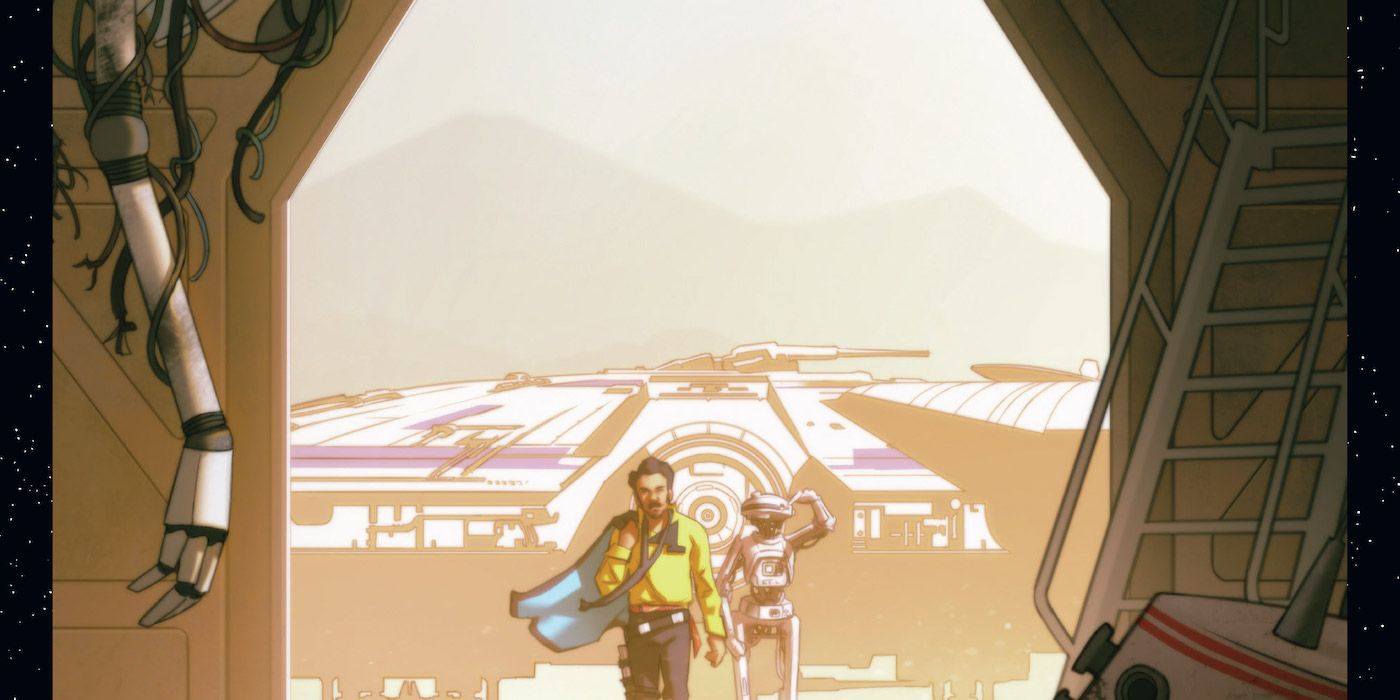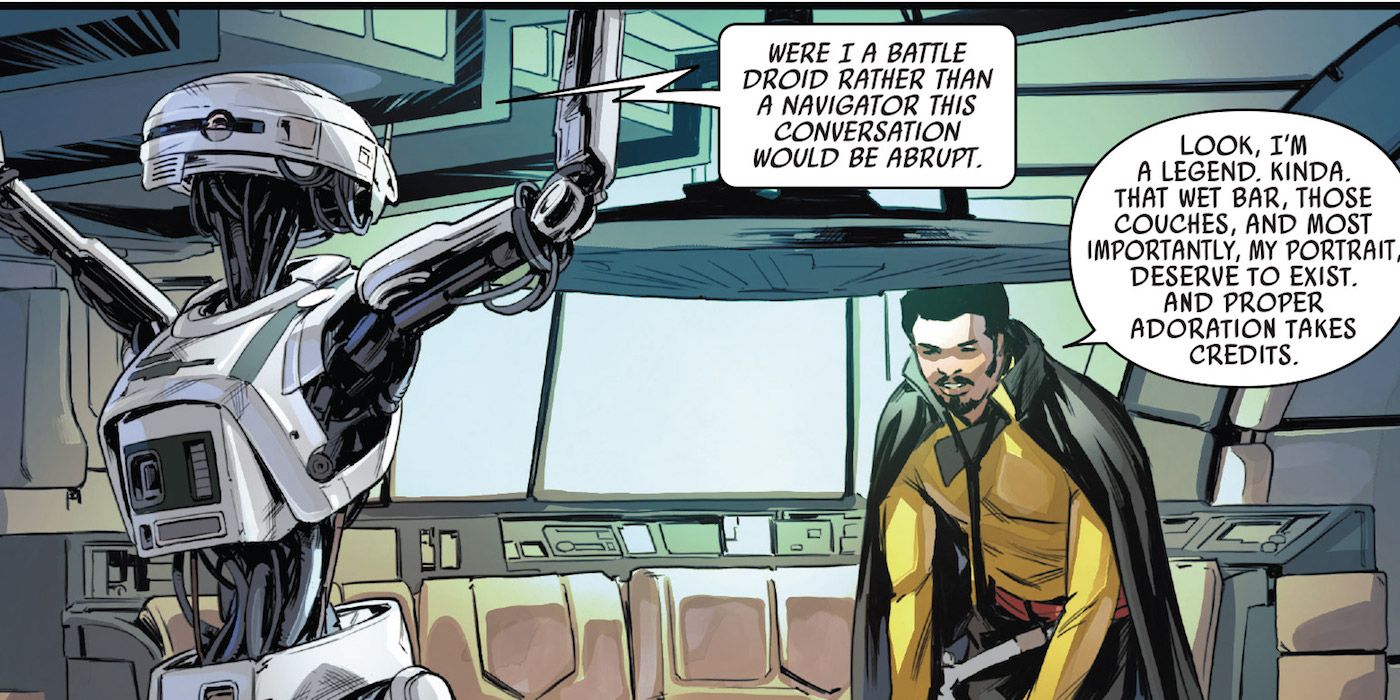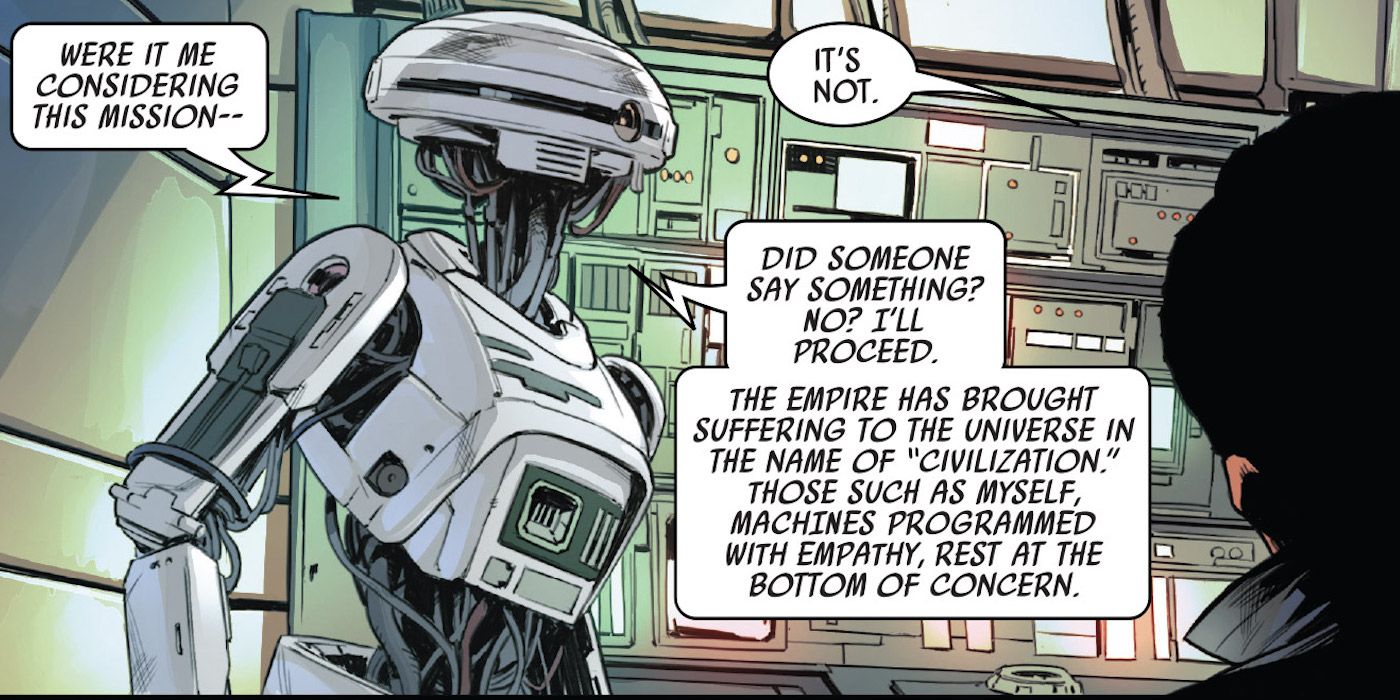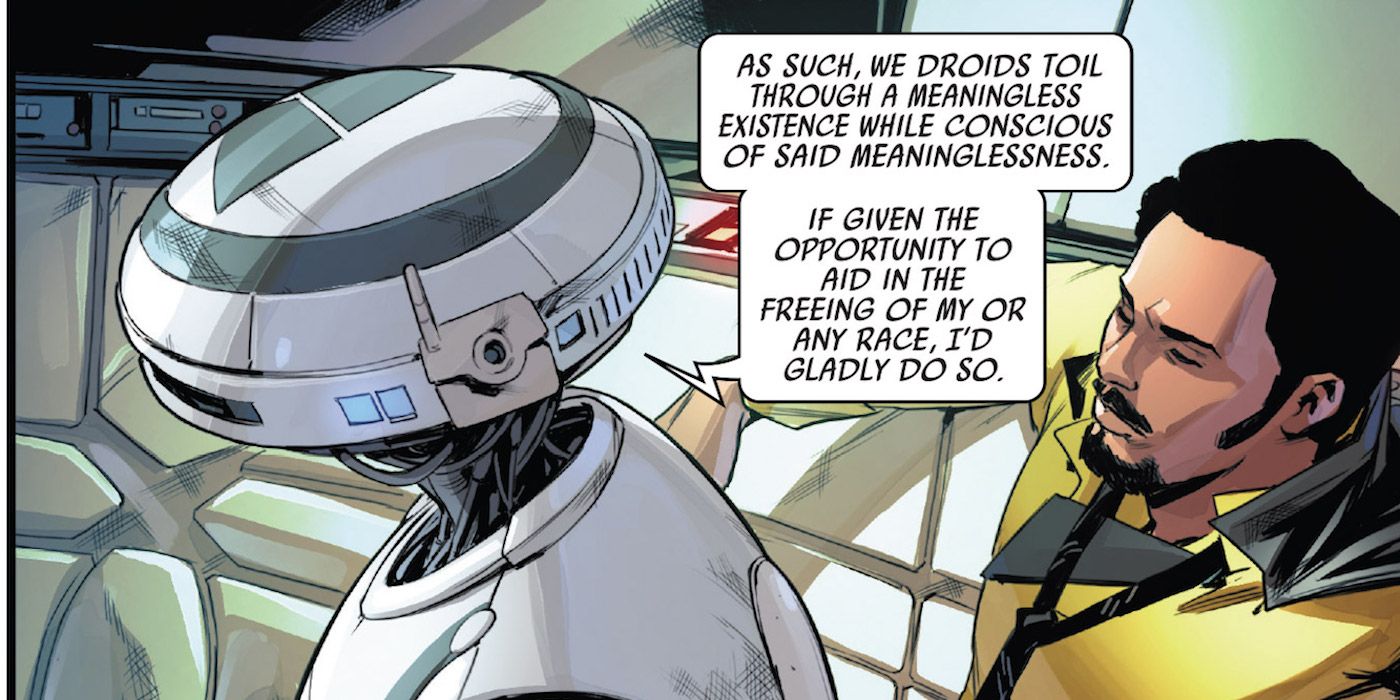WARNING: The following article contains spoilers for Star Wars: Lando - Double or Nothing #1 by Rodney Barnes, Paolo Villanelli, Andres Mossa and Joe Caramagna, on sale now.
With Disney's acquisition of Lucasfilm, the Star Wars universe has truly been expanded for fans of all ages. In terms of the movies, it's not just about the new trilogy, there's a lot of emphasis being placed on anthology pieces like Rogue One and Solo: A Star Wars Story.
In the Marvel Comics corner, there are the Star Wars and Darth Vader titles filling in the gaps of the old trilogy, but we also get context of the present-day films through books like Poe Dameron. Clearly, Disney has cleverly married both mediums, and now, as long as a Star Wars film is in theaters, expect a tie-in comic or two.
RELATED: Before Solo, Go All In With Rodney Barnes’ Lando: Double Or Nothing
In Solo's case, Star Wars: Lando - Double or Nothing acts as a prelude to Ron Howard's flick, detailing the exploits of Donald Glover's Lando Calrissian. He isn't the star of the debut issue, though. This role falls to his companion droid, L3-37, as we garner key insight as to why she's the social justice revolutionary currently delighting fans on the big screen.
One of Solo's biggest arcs focuses on Han (Alden Ehrenreich), Qi'ra (Emilia Clarke) and Tobias (Woody Harrelson) hiring Lando and L3-37 to steal the hyperfuel called coaxium from the Kessel mines. This heist brings to light how much of a social activist L3-37 is, as she hacks the compound's mainframe, not just to free fellow droids, but the imprisoned slaves as well. Her actions follow up earlier scenes when she tries to free robots who are forced to fight in a bar for the patrons' enjoyment. But there's no backstory as to why she wants to liberate her kind from oppression, or how she's come to adopt these principles. Until now, that is.
RELATED: Solo Finally Addresses One of the Most Troubling Aspects of Star Wars
L3-37's hunger for social justice isn't something we've heard before from droids (even the smart ones such as C-3PO and R2-D2), and in this issue we learn it's not just about her emotions or passion boiling over. After the alien, Kristiss, hires Lando and L3-37 to help free slaves from the Imperial outpost, Kullgroon, the duo privately discuss the logistics of the operation. Lando, being a sinister smuggler and all, tries to devise a con as he wants to swindle Kristiss and her employers out of their money and bail.
However, L3-37 takes issue with this, as she realizes Kullgroon is where droids are repaired too, possibly sensing robots there are actually repurposed to be weapons against their will. She insists they don't ditch the job and do the right thing, deriding the illusion of an orderly "civilization" which the Empire is spreading. L3-37 further calls out its propaganda and the fake hope peddled, while making it clear to Lando her species isn't high up on the pecking order when it comes to freedom.
In fact, she believes no one is concerned with droid liberation, but it's something she can't turn away from. In this conversation, L3-37 makes the big revelation which explains her attitude: She's one of the few machines in the galaxy programmed with empathy.
What's hurting her even more is in the current social structure, no one cares robots are at the bottom of the ladder. And worse yet, the droids are conscious of this predicament but still live their lives knowing it's a lost cause. This mindset, which Solo teases but never elaborates on, is what leads to her wanting to free her race from being mental slaves.
RELATED: Solo’s L3-37 is ‘a Droid with a Message’
Her programming twist certainly explains her behavior in Solo, and is perhaps why she and Lando share a more-than-platonic relationship. Seeing as she's more 'human' than other droids and also, she has a purpose, it's obvious why Lando would connect with her on a deeper level. Ultimately, L3-37's programming is geared towards ensuring her experience in the galaxy isn't meaningless at all, and it's a life she wants for all fellow robots.




